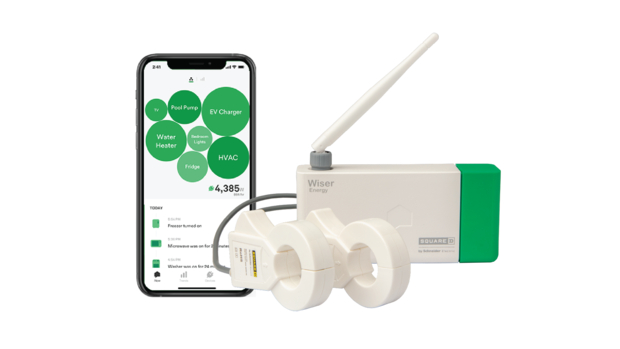[ad_1]
Electric cars covered with solar panels. Solar-powered laptop and smartphone chargers. An AI-driven system to cut the energy use of a home or a factory. This year’s annual Consumer Electronics Show puts environmental sustainability and self-reliance front and center.
The increase in eco-friendly gadgets at the largest consumer electronics event in the U.S. continues an improbable trend begun during the coronavirus pandemic. Despite a broad economic decline, many green industries — from rooftop solar to bicycling — have thrived. Once the pandemic is curbed, environmentalists say keeping these green habits going will be key if humans are to stave off another existential crisis: climate change.
From the mundane to the fanciful, these CES technologies could help humans leave a lighter footprint.
Powering down the home office
The shift to work-from-home could have long-term environmental benefits — the equivalent of taking 14 million cars off U.S. roads every year, according to one estimate. But there’s also a downside for those white-collar workers, mainly in the form of their work-from-home power bill.
Rich Korthauer, vice president of Final Distribution Business at the energy-management company Schneider Electric, said the pandemic has galvanized customers’ desires to use power more sustainably.
“Before [COVID-19], you spent from eight to five in an office. Your heating and cooling was taken care of, your power for your computer was taken care of, you left the lights on,” he said. Now that consumers can see those costs, they want them lowered, he said.
To help, Schneider is rolling out its Wiser Energy Center, a home power management system that can analyze which appliances are using the most power and when, and can be programmed to turn certain circuits off at certain times of day. For $299, plus added costs to add smart switches or integrate solar or battery power, Schneider is pitching the system as a cheap alternative to upgrading your home appliances.
“There’s so many smart products out there; you could end up with a dozen or more apps for each of the smart components,” Korthauer said. “With Wiser… you’ve got one app that literally will connect your entire electrical system with everything that you plugged into it.”
Schneider Electric
Industry, too, is looking to cut its power use. Home and kitchen appliance maker Bosch on Monday unveiled an energy-management platform for factories that use artificial intelligence to cut factory emissions. The system is in use in Hamburg, Germany, and Charleston, South Carolina, said the company’s chief technology officer, Michael Bolle. At the same event, Bosch pledged to reduce emissions along its supply chain by 15% within the decade.
The sun goes mainstream
Electric vehicles are getting plenty of play at CES, with exhibitors including Lightyear One, an electric car covered with solar panels that is being developed in the Netherlands; and Geotab Energy, a fleet-management system that promises to manage charging for large numbers of electric vehicles.
Cars with solar panels on them might seem like science fiction, but this year’s CES has all manner of solar-powered gadgets. Solar Breeze, a company that sells a solar-powered pool cleaner, said it can barely keep up with demand since the pandemic began.
“Folks are spending more time around their swimming pool due to isolation, and so our rate of customer inquiries have doubled,” the company writes on on its site.
GoSun, which sells solar-powered camping stoves, says its business has doubled during the pandemic. The company also sells solar-powered ovens and portable solar panels; this year it is introducing a solar-powered coffee brewer.
The main selling point for these items is resilience, not eco-friendliness.
“We have this term, ‘off grid,'” GoSun CEO Patrick Sherwin told reporters at a virtual press conference ahead of CES. “We define that as something that begins as soon as you leave your house. Your backyard is off grid. Your barbecue. The event that you go to, the soccer field, the tailgate. And of course, it extends to the boat, the beach, the barbecue.”
Courtesy GoSun
Sherwin even nodded to disaster preparedness becoming more accepted in the U.S.
“I don’t see prepping as something that’s all about bullets and bunkers. It’s more about, you know, beans and Band-Aids and proper products that can fill you in, in these funny times and these less secure times,” he said.
“How do we want to live?”
Of course, simply replacing our electronic gadgets with solar-powered versions won’t stave off the climate crisis. Even with the record drop in greenhouse gas emissions last year, 2020 tied for the hottest year on record. The year began with record-setting wildfires in Australia and ended with rolling blackouts in California just to keep the state’s power grid from being overloaded.
Buying solar-powered stuff without reconsidering one’s lifestyle is a “gimmick,” according to Mike Berners-Lee, an authority on carbon footprints and director of Small World Consulting, which helps companies reduce their climate impact.
The good news, he said, is that the technology to dramatically decarbonize the global economy doesn’t need to be invented — it already exists. Equally important is for consumers to understand that less-polluting ways of living can make a major difference, coupled with finding the will to maintain some of those lifestyle changes, such as flying and driving less, after the pandemic ends.
Berners-Lee sees such budding social consciousness as a silver lining in a year filled with chaos and tragedy.
“For people of my generation, especially in Europe, life’s just always carried on,” he said. “And the pandemic has really shaken that. The lovely stable world that we’ve known, for all its problems that we go on about, is fragile and precious,” Berners-Lee said.
“We’ve had so many shocks to the system,” he said. “People have had a chance to reflect, to say, ‘When we do get our lives back, where do we want to live and how do we want to live?'”
[ad_2]
Source link

